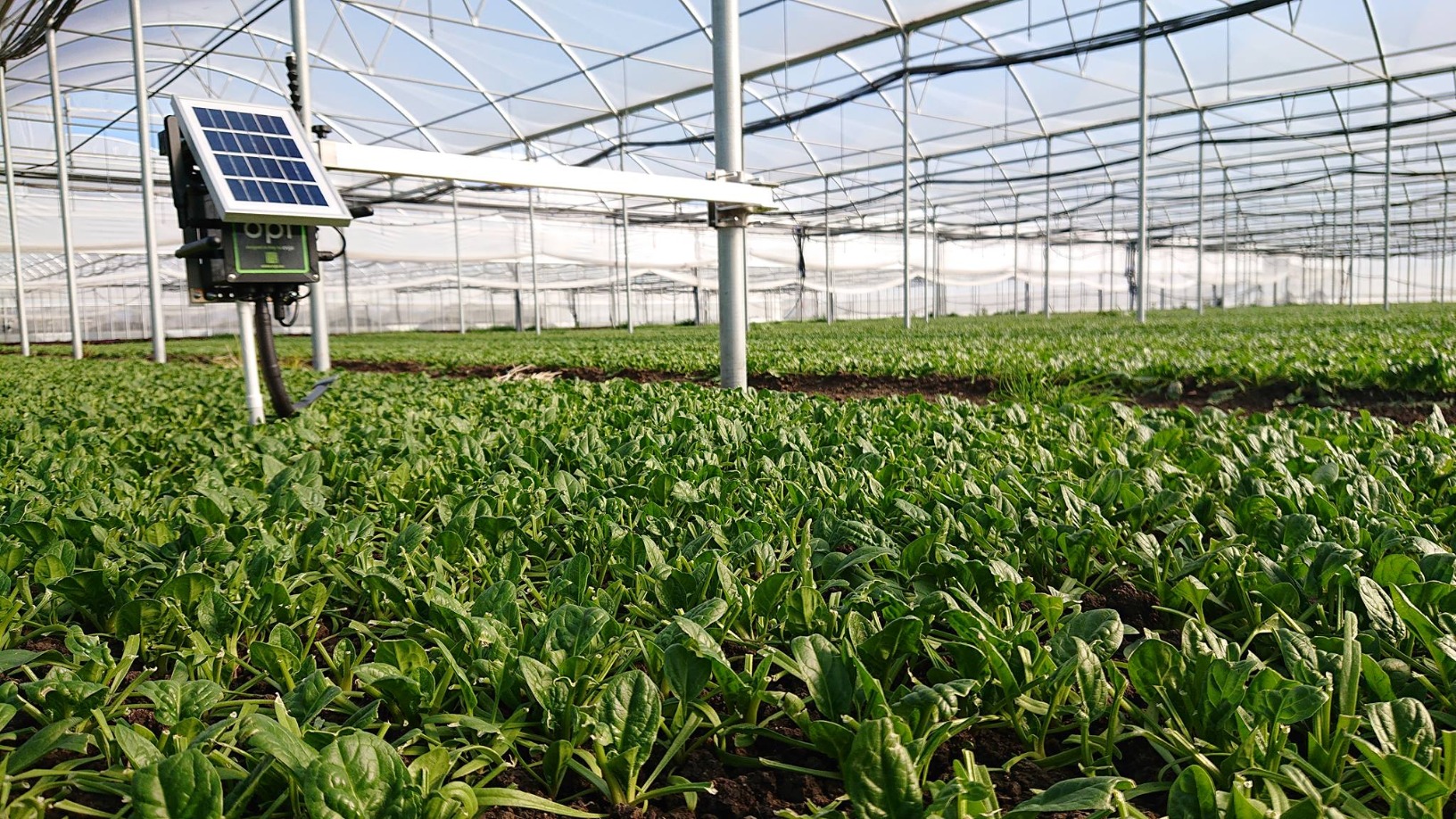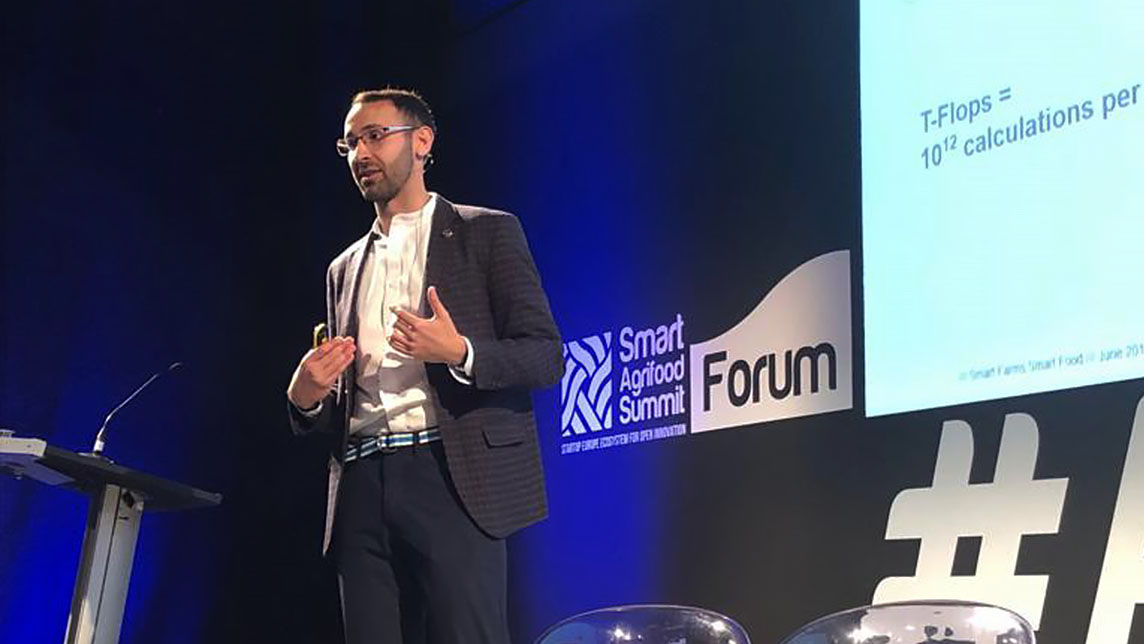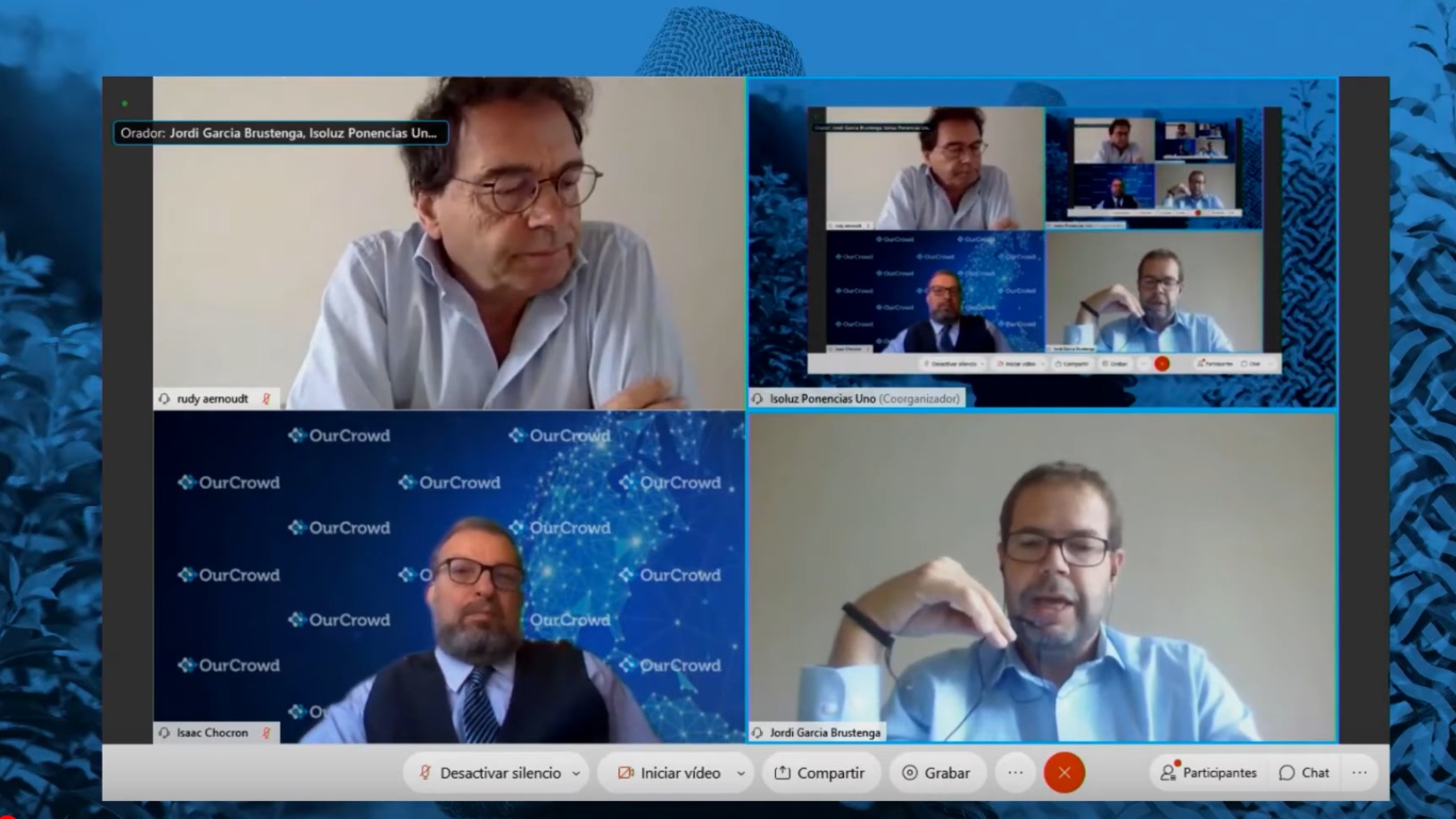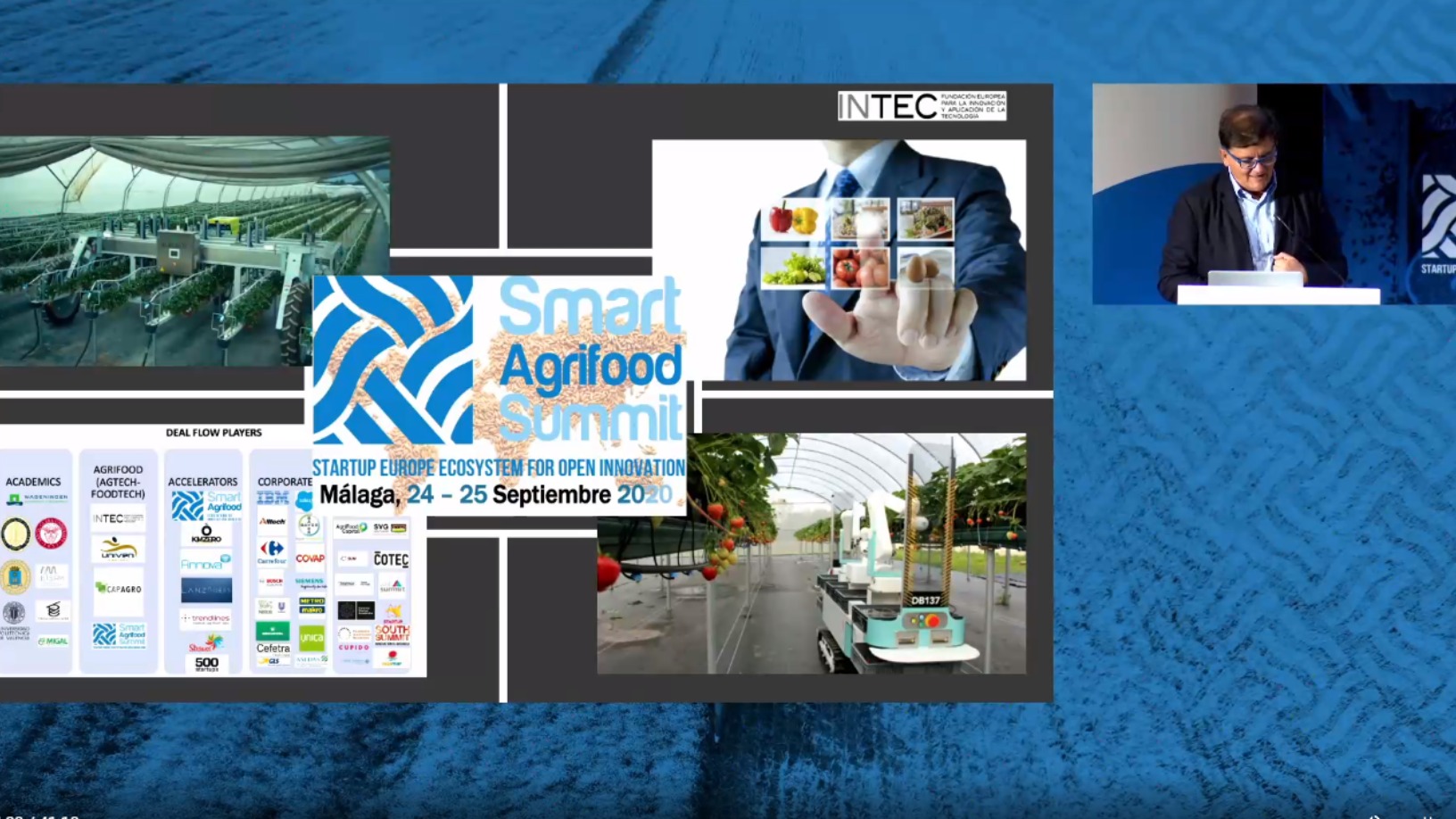Five years ago, three Italian friends dropped their promising careers to start a company together, with the goal of bringing IoT and AI into the agriculture sector. They founded Evja, a company developing an intelligent system to enable better farming decisions through data obtained via IoT sensors on the ground level, and processed by an integrated SaaS platform with agronomic predictive models.
At that time, precision farming was still barely explored as a market in Italy and the rest of Europe, with most projects confined to research centers and their spin-offs. “When we started there was nearly nothing in this market niche,” said Paolo Iasevoli, co-founder and CMO of Evja.
The team finalized the first version of their product, a decision-making support system they named OPI –“observe, prevent, and improve” – in 2017. That same year, they started pilots on a handful of Italian farms in Campania in the south of Italy. It took almost two years of research and investigation before their product reached the market.
Since the product’s commercial launch in May 2018, Evja has analyzed over 3m elements of climate data and installed its solutions on more than 50 farms, totaling 300 hectares across Italy, Greece, Serbia, Macedonia and Bangladesh. The company currently has fewer than 10 employees, including the co-founders.
None of the co-founders had any prior farming experience. Iasevoli had worked for 15 years in the digital sector, CEO Davide Parisi had experience in Spanish startups in the augmented reality space while CTO Antonio Affinito spent over 10 years working on prototyping radar systems. They also have a combined 10 years of working abroad.
CompassList interviewed Iasevoli to understand how Evja is addressing challenges and how it is going to establish and maintain its position in a market becoming more attractive yet competitive by the day. The startup recently pitched at the Smart Agrifood Summit in September.
This interview has been translated from Italian and edited for length and clarity.
What is Evja and how was the idea formed?
Evja was born in 2015. We focused on what was one of the most interesting technologies at that time, IoT, which we further advanced through the integration of AI and machine learning. With IoT sensors, we created the structure of our product OPI, “observe, prevent, and improve,” a decision support system for growers.
What do your clients achieve in terms of cost, pesticide and water savings?
Our product aims at an optimized use of resources rather than savings. Using our product doesn’t necessarily mean phytosanitary treatments will be reduced. Pesticides might not be completely eliminated but will be used only if necessary.
Usually, growers carry out crop treatments based on a predefined calendar or whenever a given pathogen might occur in a particular season. That means they use pesticides regardless of the actual risk. What we offer is a set of information that allows understanding when these conditions actually arise.
This way, customers can choose the most suitable agronomic intervention for their crops. In the vast majority of cases, treatments are significantly reduced. We’ve had cases in which an entire crop cycle has been carried out without the need for phytosanitary treatments.
One of the most important things is that OPI allows growers to track chemical residues. Chemicals in pesticides disappear from the surface of the plant after a given period of time, which means that if the use of chemical products is well managed, growers are able to harvest a product whose chemical residues are kept at the minimum and well within the allowed threshold.
This translates into healthier food on our tables yet greater commercial power in large-scale distribution. At the same time, optimized use of chemicals results in money saving, which we estimate is about €3,000 to €4,000 per hectare every year.
What types of agriculture produce do you analyze?
Our product works with any type of agriculture. We work mainly with baby leaves, aubergines, tomatoes, cucumbers, bell peppers and berries. We developed a proprietary model for downy mildew prediction, one of the most common diseases of green leaves. So far we haven't seen any competitor offering this model on the market.
What technologies do you use? Are they all built in-house?
We have a hardware and a software component. Our hardware is an IoT system made of sensors that monitor the environment. We offer microclimatic monitoring of measures such as air humidity and temperature, solar radiation and leaf wetness but also soil monitoring measures such as humidity and electroconductivity. When operating indoors, as in vertical farming, we also use other sensors to capture CO2 levels.
The hardware component is not at the core of our business so 100% of its production is outsourced, and one of our major supplier is the Spanish IoT manufacturer Libelium. The development and evolution of OPI's software, agronomic models and data analytics system are based on three main drivers: one internal, one that comes from the scientific world, and one that comes from customer feedback.
We collaborate with the Agricultural department of the Federico II University of Naples and also work with Spanish universities such as the University of Almería on a project funded by the European Union. We have an ecosystem that consistently provides know-how that we translate into the product’s features. Our proprietary technologies are related to the software and the agronomic models, which are developed 100% in-house.
What networks do you use?
Our hardware works both in Wi-Fi, 3G, 4G, and LoRaWAN. Our system operates even in the most remote areas and we work in any environment: open field, greenhouse, vertical farming and nurseries. The very advanced greenhouses and vertical farming centers equipped with a Wi-Fi connection aside, 90% of our customers use mobile networks.
How has your business grown since 2015? How much revenue are you expecting to generate this year?
I can’t give any figures. All I can say is that we have attained exponential growth year on year.
With more precision farming companies entering the market, how do you plan to stay competitive and differentiate yourself?
We have an all-in-one system to support three key agronomic practices: protection, irrigation, and nutrition. This is our biggest competitive advantage as the competition only focuses on verticals, meaning that they focus only on the monitoring or on data analysis or on just one of the three areas.
Evja provides an integrated and comprehensive support system to improve the entire crop cycle. Our data analytics system, connected to the data sets we collect, is based on the agro-economic know-how integrated into our platform. We help the client understand how their crops behave under certain circumstances related to microclimate.
Based on a specific event, we are able to collect and analyze the data and correlate it with that event. This creates best practices and allows farmers to understand under which circumstances certain events occur. By correlating these events to microclimatic conditions, it is possible to efficiently manage crops and strive for the best.
What is your business model?
Our device covers up to three hectares under homogeneous conditions. That means the monitored area is required to have the same microclimatic conditions. This applies, for example, to a greenhouse, whereas in open fields it might vary depending on the nature of the terrain, such as different elevations and sunlight, wind, or proximity to water sources that could change the microclimate significantly and where more devices are needed to get an accurate analysis. We offer a lease cost of €150 monthly, which includes hardware, software, remote assistance and maintenance. We also have a one-off payment formula of €4,000 per device.
Are you planning to raise any new funding?
We would like a new capital injection to invest in R&D and to reinforce our sales in Italy, as well as in other key markets such as the Netherlands, Spain and Germany. It’s essential for us to continue investing in R&D to stay competitive in the market. When we started, there was very little competition. Today, there are many new players. We want to ensure that our models and our agronomic data analysis, on which we most pride ourselves, will continue to be our competitive advantage.
How do you market OPI?
Our product has a great technological component but above all it’s something very new. At a commercial level, we’ve been the first movers. Therefore, instead of just selling our product, we’ve had to sell an entire concept that didn’t exist before. We have done a great job of evangelizing and working face-to-face with customers to educate them on the product and its technology.
How has Evja’s workforce been structured between the Dutch and Italian offices? Why the Netherlands?
Both R&D and management are centered in Naples. In the Netherlands, we have a sales representative and we travel there at least once a month. We opened a second office there when we joined StartLife, the University of Wageningen’s acceleration program.
The Netherlands is one the most advanced regions in the agri-food sector, and the University of Wageningen is at the cutting-edge of agri-food research. Companies such as Unilever, Nestle and Lidl also have offices there. That’s why it is called the Food Valley.
How have you managed to achieve such international outreach? Do you have a network of distributors to take care of sales and business development?
Our plug-and-play solution doesn’t require any sort of pre-configuration or set-up. The hardware can be turned on with just a button while our software is in the cloud and can be accessed from any device. This has allowed us to sell OPI online. We got a client in Bangladesh just through online sales, with everything handled remotely from the first contact to the installation of OPI in the rural areas around Dhaka. For areas that cannot be managed directly by us, we rely on partnerships with distributors.
Were system modifications needed to adapt to non-EU climate conditions?
Our system should be seen as a tool that precisely detects the surrounding environment. Thus, most of the adaptations come from data interpretation. It’s work that largely focuses on data analysis rather than data collection. Obviously, certain features of the predictive models require calibration, which is facilitated by the AI and ML integrated into our platform. Based on the agronomist's reports, our technology allows us to learn how pathogens behave in a particular context. It’s continuous learning that improves consistently through use.
You had €200,000 in funding capital. Was this bootstrapped?
The €200,000 mostly includes our own funds and some funds collected from the accelerators we joined in 2017. These accelerators helped us fine-tune our product and gain visibility in the network. Through the Agroinnovation Lab we joined in Austria, we managed to get two large multinationals in the agricultural sector as shareholders: the German BayWa and the Austrian RWA. Other acceleration programs that have been crucial for us have been Startupbootcamp in Rome and StartLife in the Netherlands.
What about public grants?
We are working on several projects funded by the European Union. The most recent one is called Prima, for which Evja is the technological partner. Scientific partners of the project include Crea, the Italian research center; the University of Pisa; the University of Almería in Spain; the University of Akdeniz in Turkey and the CRRHAB research center in Tunisia. This project is related to the cultivation of tomatoes in greenhouses with using salt water.












